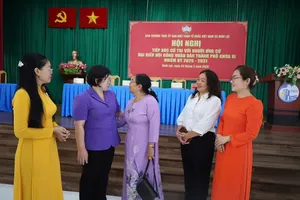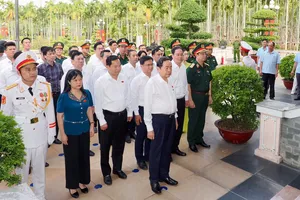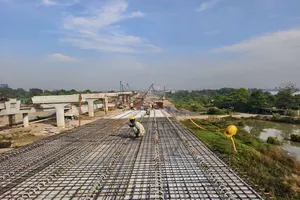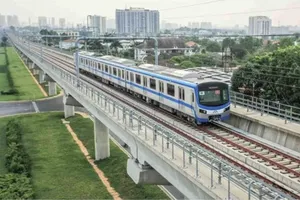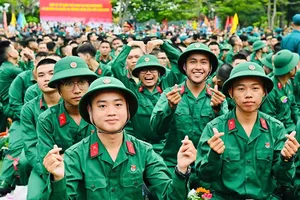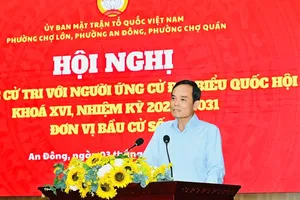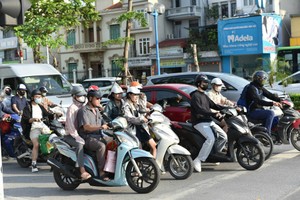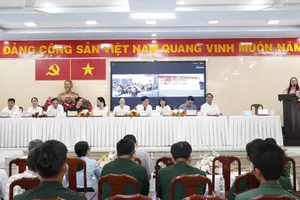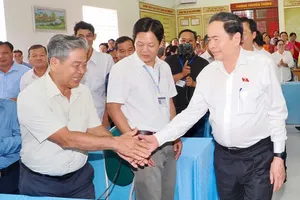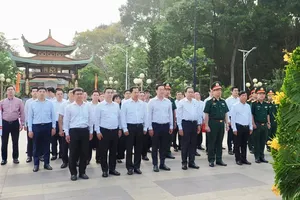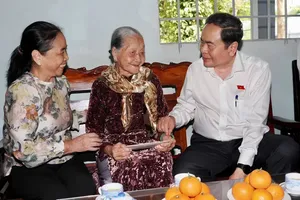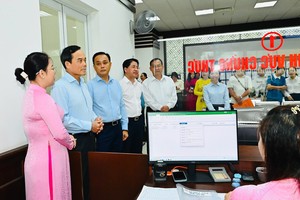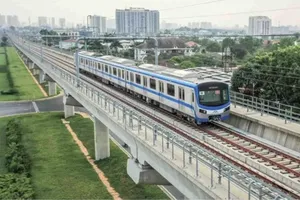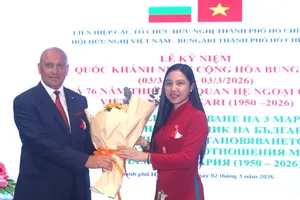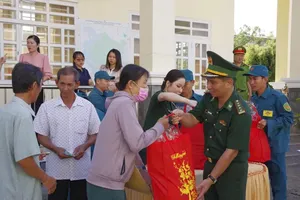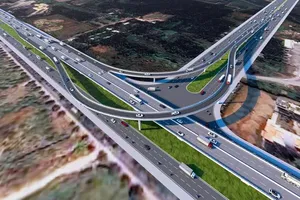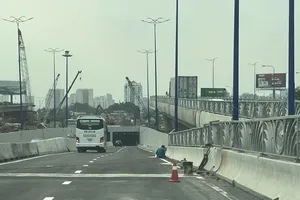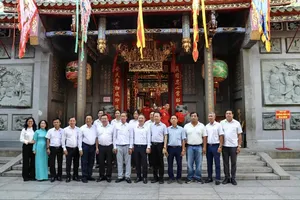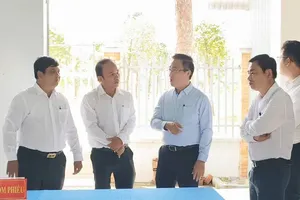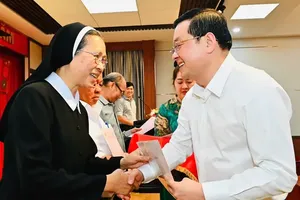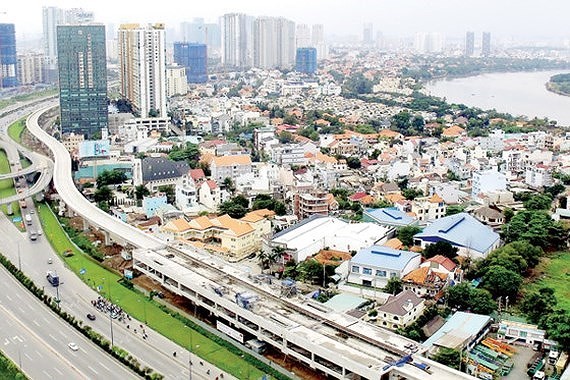
At the meeting, HCMC People’s Committee Office chief Vo Van Hoan named 19 groups of works need to be carried out and proposed to immediately implement 10 groups without the need of deep study, for instance the list of projects using over ten hectare rice growing area, public investment projects in Group A and city’s capital advancing for infrastructure projects belonging to the central government’s responsibilities.
Relevant sides should conduct deep studies for the remaining of nine groups such as decentralization and authorization, equitization revenue use, payroll reform plan, social capital mobilization, especially tax and fee supplementation or increase.
Some types of taxes and fees are not applicable currently but in the next five or ten years. Still they should be studied and proposed right now to have an overall look and fully estimate impacts. Mr. Hoan suggested inviting experts to study this matter with the municipal authorities right from the start.
He proposed to complete projects to implement the resolution in March for the standing board of the city People’s Committee to approve and submit to the city Party Committee and People’s Council.
Associate Professor and Dr Tran Hoang Ngan, director of HCMC Cadre Academy, said that the NA resolution issue aimed to solve problems and challenges which HCMC is facing.
Therefore, projects of the specific mechanism must head toward tackling these issues including traffic jam, flooding, climate change and environmental pollution and soon build and put into operation schools and hospitals to ease overloading.
In short term, the city should conduct decentralization and authorization right away, he stressed. HCMC has carefully studied this matter and district, commune and ward authorities are waiting for implementation to meet residents’ expectation.
Tax, fee increase
Dr. Tran Du Lich congratulated HCMC for having specific mechanisms after many years of pursuing but noted that the city will undergo heavy pressure with the responsibility of efficiently implementing the mechanisms during only five pilot years.
Talking about the mechanism on budget revenue increase, he proposed to study and estimate positive and negative impacts from tax or fee hike. Imposing special consumption tax on wine, beer, cigarette and petrol or raising auto registration fee must be carefully weighed.
If the city increase the fee, residents might register their automobiles in other localities and take to HCMC for use. It is not sure that tax hike will increase or tax cut will reduce budget revenue, he analyzed.
Dr. Huynh The Du from Fulbright Vietnam University emphasized that the success of special mechanisms is to increase the competitive ability of the city, job creation possibility, budget revenue and gross regional domestic product.
Hence, the municipal authorities must improve business environment to lure businesses and effectively use its resources.
Noting basic conditions need to comply with when implementing the group of solutions in budget and finance, he said tax and fee policies implementation must ensure fairness and collection ability.
If the city was amateur, money would run into other localities. If that situation occurred, budget revenue would reduce although the city increased taxes, he said.
He proposed that mechanisms should create ‘sunken points’ to attract economic activities. If the way of doing is not suitable, the city will unintentionally become a higher point and economic activities will flow into other provinces and cities.
Concluding the meeting, chairman Nguyen Thanh Phong said that successful implementation of mechanisms aimed at advantageous development environment toward sustainability and improving the competitive ability of HCMC.
He required that projects must be built before June next year and agencies to study deeply lot of works with the attendance of experts.
Mr. Phong assigned deputy chairman of HCMC People’s Committee Tran Vinh Tuyen to undertake the group of works relating to finance and budget. Members of this group include directors of Finance and Taxation Departments.
He will be directly in charge of the group of works relating to land, investment, decentralization and authorization. Members comprise directors of Planning and Investment, Finance and Natural Resources and Environment Departments.
In addition, the city will invite experts to join hands in studying and building projects to ensure efficiency and feasibility.
